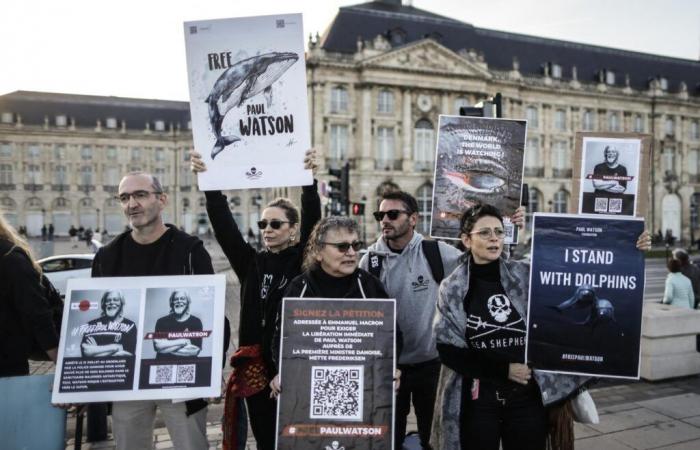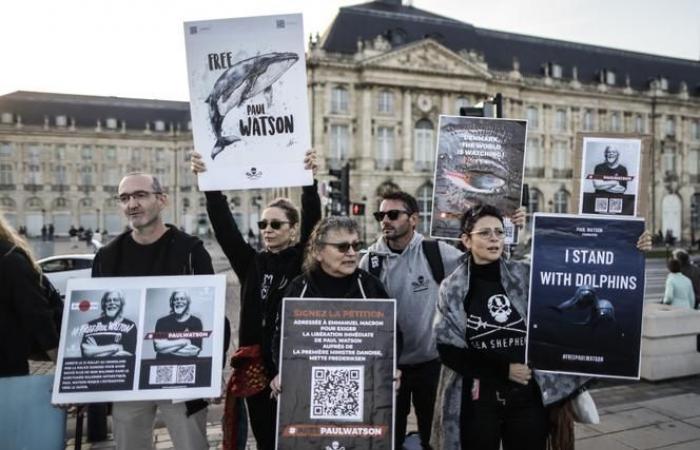It has been more than five months since the founder of the NGO Sea Shepherd, Paul Watson, has been incarcerated in Nuuk prison, the capital of Greenland. Five months that the American-Canadian whale defender, aged 73, waits to be determined on his fate: will he be extradited to Japan, where he faces up to fifteen years in prison, for having participated to an anti-whaling operation against a Japanese whaler in Antarctic waters in 2010, causing “damage and injury”according to the international arrest warrant issued by Tokyo against him in 2012; or will he be allowed to join his wife and their two children in France, where he plans to request political asylum?
Denmark seems hesitant to decide, torn between the requests of Japan and France – on July 23, the Elysée announced that President Emmanuel Macron was following “the situation up close” and was “intervened with the Danish authorities” to avoid the extradition of Mr. Watson. It is also placed under pressure from environmental NGOs, as well as that of its autonomous territories, the Faroe Islands, in particular, which hunt whales and do not appreciate the activities of Sea Shepherd. In Copenhagen, the Minister of Justice, Peter Hummelgaard (Social Democrat), has still not said when he intends to deliver his decision.
In the meantime, Paul Watson is summoned again to the Greenland court on December 2, which must rule on his continued pre-trial detention. This is the sixth hearing since his arrest on July 21 in the port of Nuuk, where his boat, the John-Paul-DeJoriahad come to refuel, before heading to the North Pacific, for a new operation against a Japanese whaling ship.
Examine the facts in detail
On November 13, the judge in the case urged the justice minister to make a decision quickly. The activist's defenders appealed to the Danish Supreme Court: they believe that his period of pre-trial detention should not have exceeded two or three months, “which is the maximum sentence that Paul Watson would face in Greenland, if he were convicted of an assault”believes lawyer Jonas Christoffersen.
The fact that the Minister of Justice's decision has been delayed does not surprise Mr. Christoffersen, however. “This is due to the very nature of the procedure, which is strictly legal. Even if the Minister of Justice makes the decision, it must be governed by the law on extradition, knowing that it can then be challenged in court”he explains. Before making their recommendation, ministry officials must examine in detail the facts with which Mr. Watson is accused and assess whether they are reprehensible under Greenlandic law, “what takes time”notes the lawyer.
You have 52.6% of this article left to read. The rest is reserved for subscribers.







